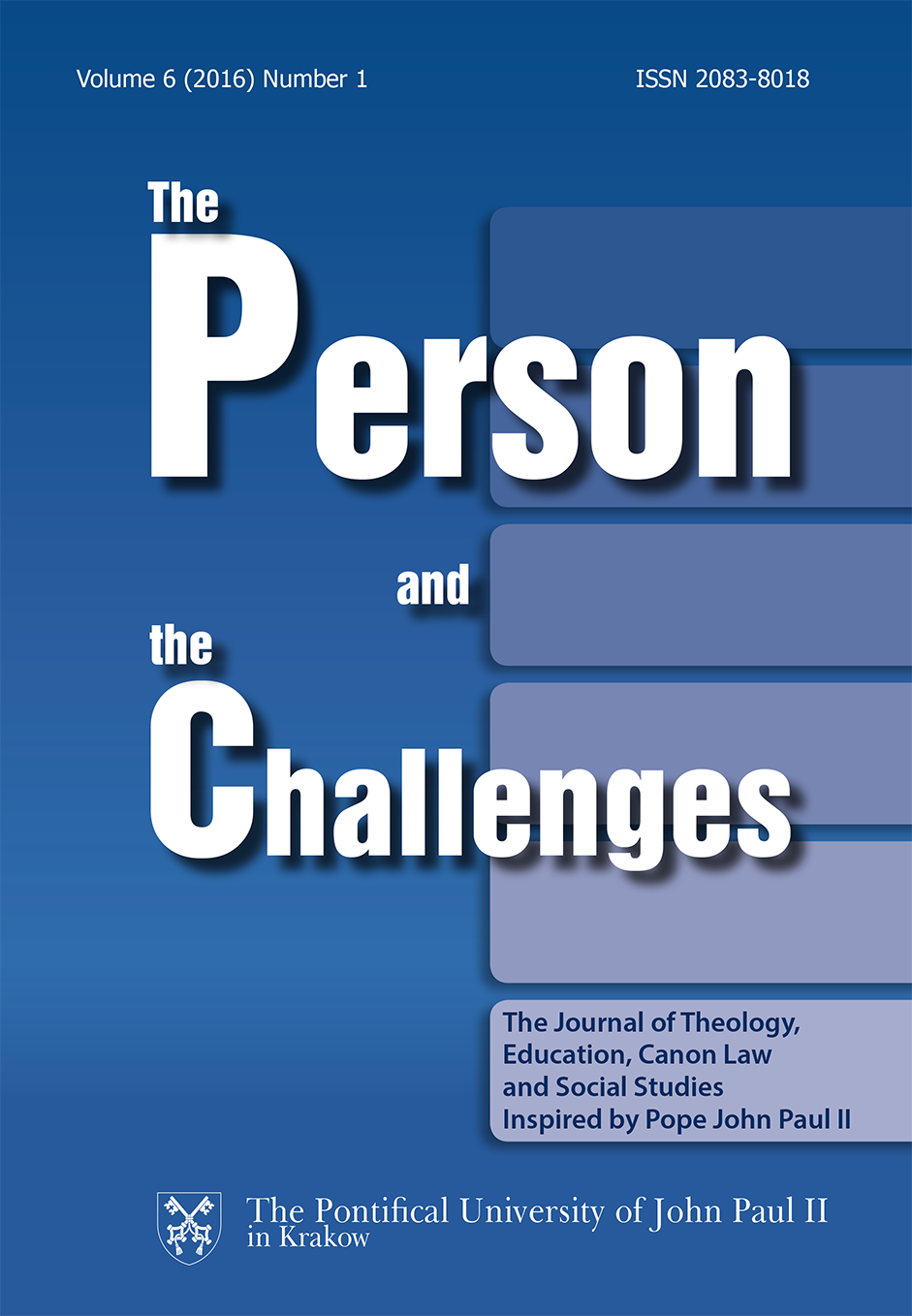Vi sono ragioni della libertà note al cuore e all’intelletto: il triplo sguardo sulla libertà espresso nei "Ritiri spirituali di Parigi" di Józef Tischner
DOI:
https://doi.org/10.15633/pch.1657Słowa kluczowe:
Freedom, heart, soul, dramaAbstrakt
In its analysis of human freedom, Józef Tischner’s philosophy poses fundamental questions about the essence of freedom, but also about the sense of preservation of freedom in one’s life. Freedom appears as a primary phenomenon, something that is part and parcel of human nature. Freedom as a structural element of human existence manifests itself perhaps most clearly in the sphere of human relations, which, immersed as they are in the eternal drama of good and evil, are played out in the space between salvation and damnation. The binary character of values, best seen in our use of freedom, keeps us for ever mindful of that unavoidable drama a man has to face, owing to his freedom, need not be helpless.Using such categories as election, space and health of the soul in his Rekolekcje Paryskie, Tischner approaches the definition of freedom through a succession of essential modifications which articulate some fundamental points concerning relations between people and man’s relations with God from an anthropological, axiological, ethical, social and theological perspective. Tischner proposes no definitive interpretation of freedom but, viewing the controversy over freedom as one of the most difficult problems in the philosophy of man, he tries to show what man’s inner freedom consists in and what achievements it makes man capable of.
Bibliografia
Tischner J., Miłość niemiłowana, Wyd. S. Grotomirskiego, Kraków 1993.
Tischner J., Rekolekcje Paryskie, Znak, Kraków 2013.
Tischner J., Zarys filozofii człowieka dla duszpasterzy i artystów, in: „Myślenie w żywiole piękna”, Znak, Kraków 2004.
Pobrania
Opublikowane
2016-03-31
Numer
Dział
Articles
Licencja
Prawa autorskie (c) 2016 Inga Mizdrak

Utwór dostępny jest na licencji Creative Commons Uznanie autorstwa 4.0 Międzynarodowe.
Autorzy publikujący w czasopiśmie udzielają jego wydawcy zgody o następującej treści:
- Autor zachowuje autorskie prawa majątkowe do utworu, a jednocześnie udziela wydawcy czasopisma zgody na jego pierwszą publikację w wersji drukowanej i wersji online na licencji Creative Commons Uznanie autorstwa 4.0 Międzynarodowe oraz zgody na wykonywanie opracowań, w tym przekładów.
- Autor ma możliwość udzielania zgody niewyłącznej na opublikowanie utworu w wersji, która ukazała się w czasopiśmie (np. zamieszczenia go w repozytorium instytucjonalnym lub opublikowania w książce), wraz z informacją o jego pierwszej publikacji w czasopiśmie.
- Autor może umieścić swój utwór online (np. w repozytorium instytucjonalnym lub na swojej stronie internetowej) jeszcze przed zgłoszeniem utworu do czasopisma.

